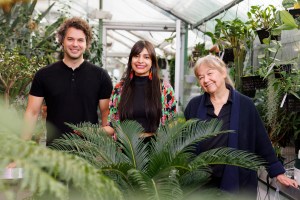Campus & Community
-
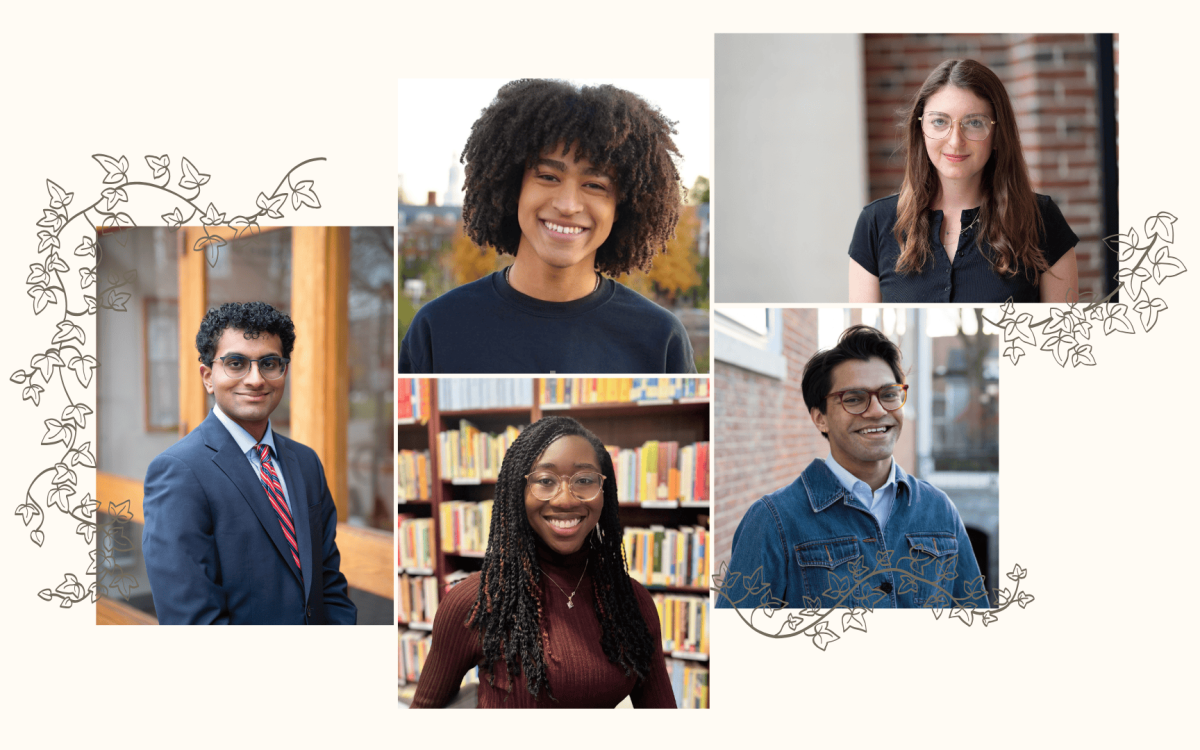
5 from Harvard named Marshall Scholars
Awards for 4 students, 1 alumna — more than any other institution — support graduate studies in the United Kingdom
-
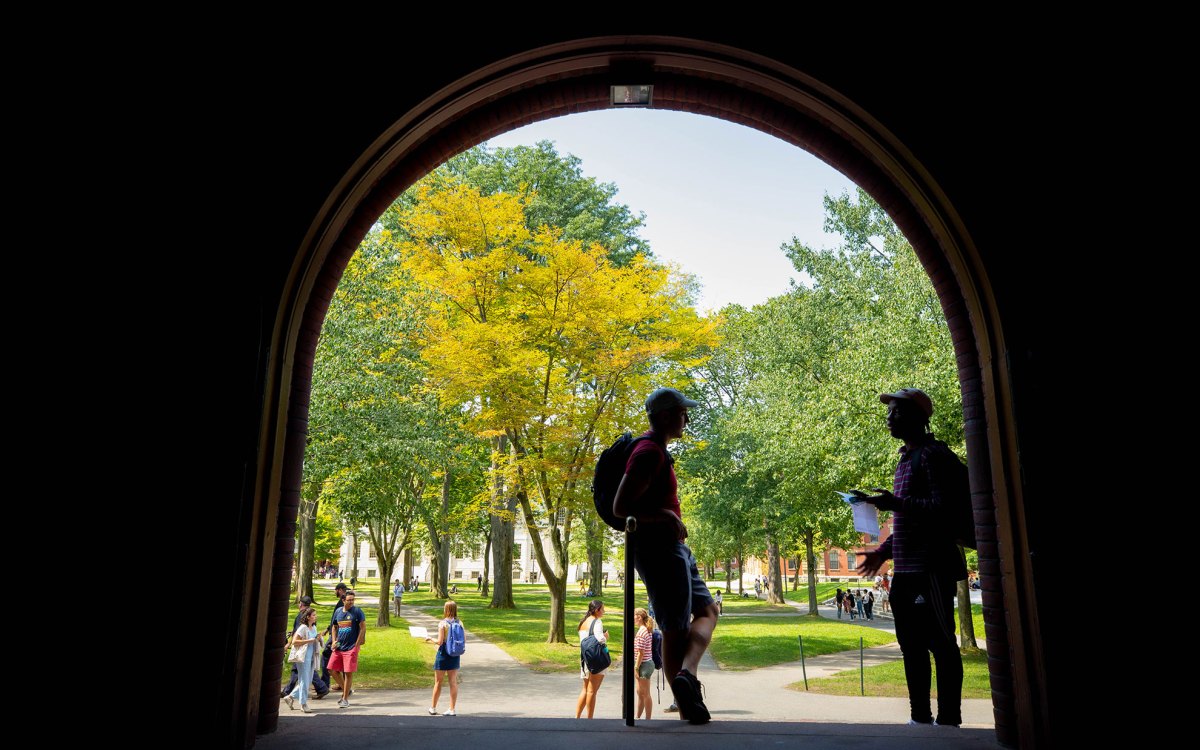
‘Our students are seeking not just to coexist, but to understand’
8 projects win Building Bridges grants to spark constructive dialogue on campus
-
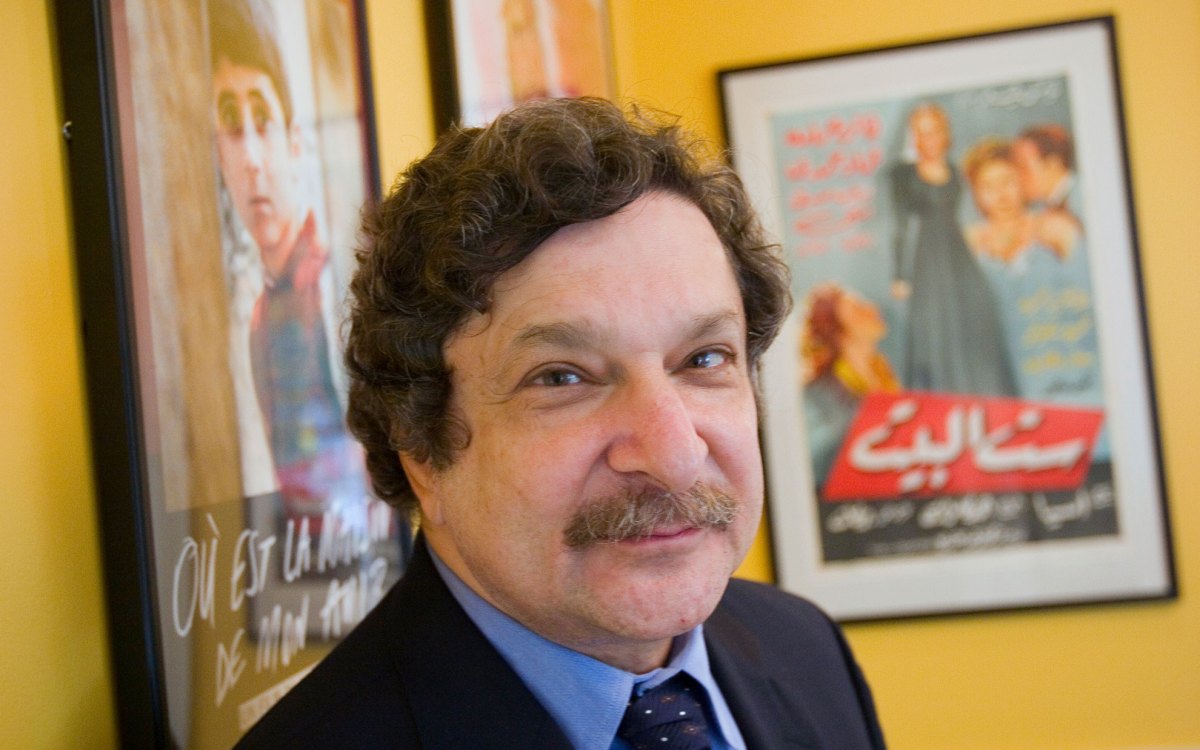
Roy Parviz Mottahedeh, 84
At a meeting of the Faculty of Arts and Sciences on Dec. 2, 2025, the following tribute to the life and service of the late Roy Parviz Mottahedeh was spread upon the permanent records of the Faculty.
-
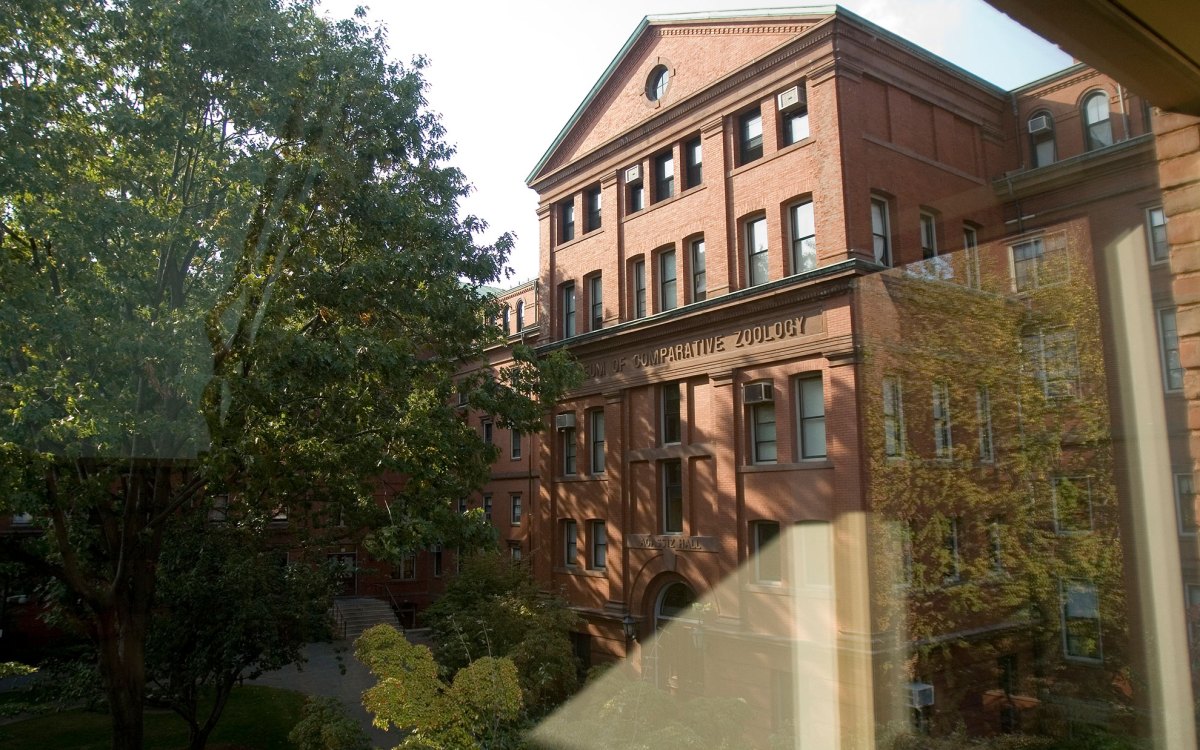
Karel Frederik Liem, 73
At a meeting of the Faculty of Arts and Sciences on Dec. 2, 2025, the following tribute to the life and service of the late Karel Frederik Liem was spread upon the permanent records of the Faculty.
-
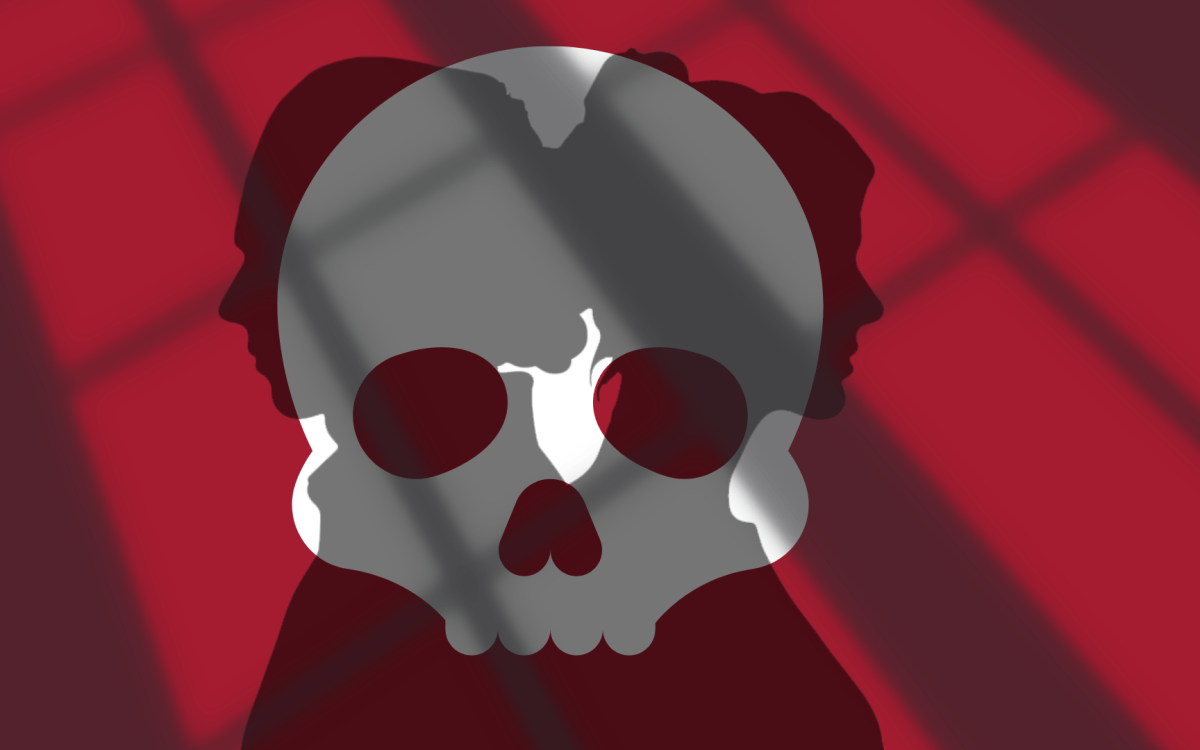
‘Goodnight, sweet prince’
New holiday film reimagines couple’s searing grief over death of young son, how it inspired creation of ‘Hamlet’
-
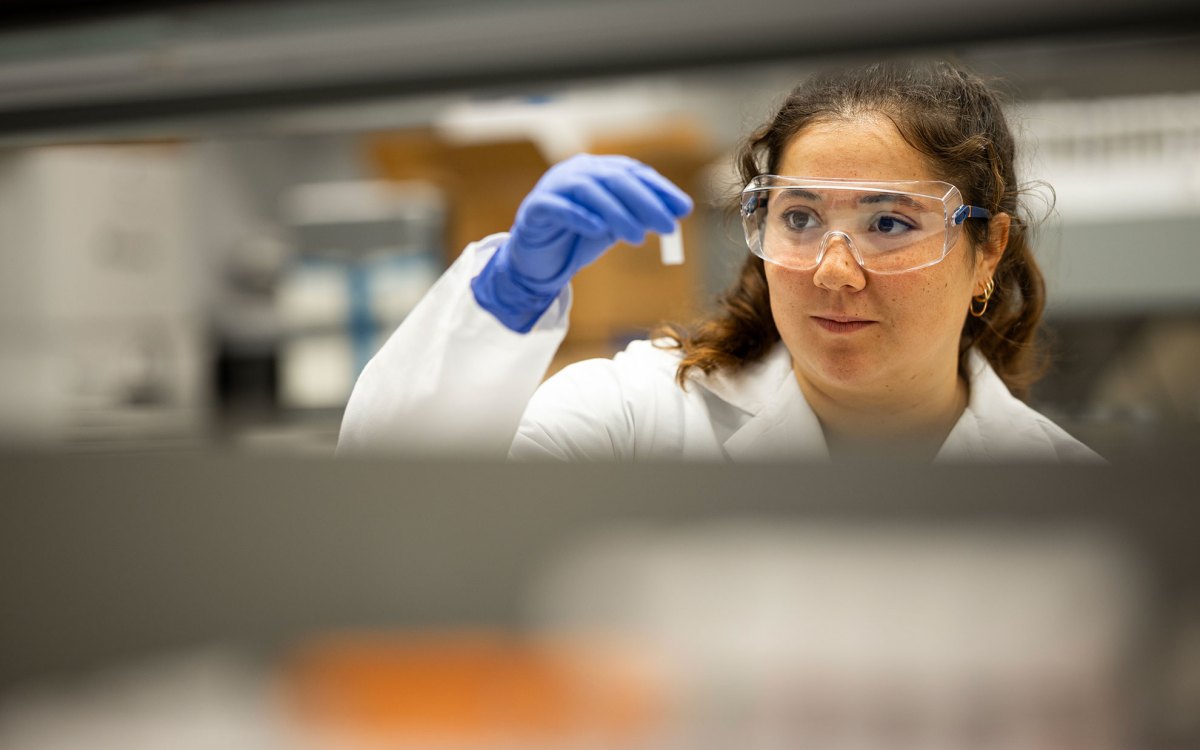
On the sea or in the lab, Olivia Hogan-Lopez knows the value of perseverance
Senior is researching how PFAS chemicals impact humans and the environment
-
HMS launches new department to study systems biology:
The Medical School (HMS) made a significant commitment to the emerging field of systems biology in the creation of the Department of Systems Biology (DSB), one of the first department-level systems biology programs in the nation. The announcement was made Sept. 23.
-
After nearly 30 years, Thomas Reardon concludes service:
Thomas M. Reardon, a driving force behind Harvards last two major fundraising campaigns, has announced his plans to step down this fall as the Universitys vice president for alumni affairs and development, while remaining active in fundraising matters as senior adviser for University development.
-
Lions, tigers, and books…:
When Theodore Roosevelt left the presidency in 1909, he went on safari to British East Africa, toting gear, provisions, and a 60-pound aluminum carrying case full of his favorite books. The new exhibition in the Theodore Roosevelt Gallery, Pusey Library – Roosevelt Reading: The Pigskin Library – highlights this famed literary collection.
-
Ig Nobel Prizes will skewer silly science at Sanders
Nano-seminars, Murphys sons law, an opera about a scientist who falls in love with an oxygen atom, and the ever-popular Win-a-Date-With-a-Nobel-Laureate Contest, will take center stage at Sanders Theatre Oct. 2 during the annual Ig Nobel Prize ceremony.
-
D. Ronald Daniel to conclude service as treasurer:
D. Ronald Daniel, M.B.A. 54, the Universitys treasurer and currently the longest-serving member of the Harvard Corporation, intends to conclude his service in those roles at the end of the 2003-04 academic year.
-
‘Who goes to college?’:
Without a glint of self-aggrandizement, Bridget Terry Long describes her work as grappling with the million-dollar question.
-
African language program launched:
The Department of African and African American Studies is launching a new African Language Program. Beginning this fall, undergraduate students can study Hausa and Swahili with two experts in the field of African language, as well as travel to Kenya, Niger, and Ghana for further study.
-
HLS creates fund to combat discrimination:
The Law School (HLS) has announced the creation of a fund to support courses, seminars, research, and conferences on ways to combat discrimination and prejudice. The Sheldon Seevak/Facing History and Ourselves Fund, established with a $2 million gift from Sheldon Seevak, will be managed by the William Henry Bloomberg Professor of Law Martha Minow.
-
Urban resuscitation:
Hundreds of years ago, Chinese architects designed a special city where the Ming emperors could rest on their way to visit their ancestral tombs.
-
Harvard Neighbors to open its doors:
Harvard Neighbors will host an open house on Oct. 1 from 4 to 6 p.m. at Loeb House. Open to University faculty and staff (and their spouses or partners), Harvard Neighbors sponsors a range of educational and cultural events throughout the academic year. The Oct. 1 welcoming reception will highlight this falls schedule of events, such as the upcoming apple-picking trip to Parlee Farm in Tyngsboro on Oct. 4.
-
Law School holds first reunion for gay, lesbian, bisexual, and transgender graduates:
Harvard Law School held its first-ever reunion for gay, lesbian, bisexual, and transgender graduates last weekend, Sept. 19-20. The reunion commemorated the founding of the first gay student group at the School, the Committee on Gay Legal Issues, which was founded in October 1978. The event began with a reception Friday night (Sept. 19) at an alumnus home in Cambridge, followed by panel discussions Saturday, a luncheon at the School, and a celebratory dinner banquet at the Hyatt Regency Cambridge. At the banquet (above), Law School Dean Elena Kagan (left) talks to the Hon. Michael Sondberg J.D. 71 (right) while Jack Wofford LL.B. 62 listens in. Kagan spoke at the dinner, standing in for California State Sen. Sheila Keul, who was unable to attend the event.
-
Kennedys attend IOP rededication:
It was politics as not-quite-usual Friday afternoon (Sept. 19), as members of the Kennedy family joined Harvard faculty and students and other political dignitaries to rename the forum at Harvards John F. Kennedy School of Government (KSG) for John F. Kennedy Jr. The event, in celebration of the forums 25th anniversary, was a moving testament to the legacy of President Kennedys only son, who was passionate about engaging young people in the democratic process.
-
CSWR to host 21 fellows at Divinity School:
The Center for the Study of World Religions (CSWR) at Harvard Divinity School (HDS) will host 21 fellows during the 2003-04 academic year. Established in 1958, CSWR fosters excellence in the study of world religions on the broadest scale and from many perspectives. International in composition and subject matter, CSWR facilitates the exchange of ideas growing out of scholarly research. The CSWR Senior Fellowship Program provides scholars with the time for investigation and access to the vast resources of the University.
-
Joint Center for Housing names 2003-4 fellows
Seven leaders in community development and housing were recently appointed fellows to Harvards Joint Center for Housing Studies. The fellowship program offers leaders in the field of housing an opportunity to explore emerging research areas and to work closely with the centers research team. Fellowships are awarded for an academic year and in some cases fellows are re-appointed for consecutive years.
-
HFA acquires Ukrainian film collection:
The new film conservation center will not only help the Harvard Film Archive care for films already in its possession it will also encourage those with valuable film collections to entrust them to the archives stewardship.
-
Newsmakers
Two administrators join Summer School The Harvard Summer School has announced the addition of two new administrators. Robert A. Lue has a joint appointment as dean of the Harvard Summer…
-
In brief
Send resumes online Beginning this month, resumes and applications for positions at the University will only be accepted online. In order to be considered for any position(s), applicants must apply…
-
Mr. Smith goes to Washington:
Harvard junior Brad Smith added the voice of his generation to the debate over Social Security reform this past summer, appearing before the U.S. Senates Special Committee on Aging to ask lawmakers to reform the system now to avoid substantial benefit cuts later.
-
GSD names 11 new fellows:
The Loeb Fellowship at the Graduate School of Design (GSD) has announced 11 individuals who have been awarded fellowships to participate in one year of independent study using the curriculum and programs of GSD as well as other resources at the University. The only program of its kind in the nation, the Loeb Fellowship provides a unique opportunity for nurturing the leadership potential and professional development of accomplished midcareer individuals in design and other fields related to the built and natural environment.
-
Obituary:
Richard Alden Howard, botany professor and director for 23 years of the Arnold Arboretum, died Sept. 18 at his home in Cohasset. He was 86.
-
Quad Bikes opens to repair, rehabilitate:
For this cyclist, the daily commute had become a grind. And a pop, a squeak, a scrape, and a sort of ching-ching-ching between gears.
-
Australian butterflies ‘invade’ Harvard:
More than 15,000 butterflies from Australia have moved into Harvards Museum of Comparative Zoology. They wear iridescent blue, green, and silver boast black, red, and white spots and flaunt color combinations beyond the imagination of hip fashion plates.
-
When light has you singing the blues:
Blue light outshone white in a Harvard University experiment to find better ways to reset our body clocks.
-
President Summers opens office doors to students Oct. 2
President Lawrence H. Summers will hold office hours for students in his Massachusetts Hall on the following dates:
-
HASI adds nine more programs:
Nine after-school programs in Boston have joined the Harvard After School Initiative (HASI) this fall, receiving more than a quarter million dollars in grants and the opportunity to work with Harvard Graduate School of Education (GSE) faculty and coordinators with other after-school organizations supported by HASI.
-
Harvard opens museums to the community:
The treasures of Harvard Universitys six museums – from fine art to flowers of glass, tarantulas to dinosaur eggs, prehistoric pottery to 20th century masterpieces – are priceless. But on Sunday (Sept. 28), theyll also be free, at the first-ever Harvard University Museums Community Day, an open house from 1 to 5 p.m.
-
Harvard endowment reclaims some ground:
Harvard Universitys endowment last year made up ground lost during the prior two years difficult investment climate, earning a 12.5 percent return during the 2002-03 fiscal year, bringing the endowments overall value to $19.3 billion.
-
Archive works to preserve silver screen’s gold:
Few would deny that the DVD is a remarkable invention. Its hard not to be astonished by a process that can put a two-hour movie on a plastic disc small enough to drop into your breast pocket.
-
‘Simple Buddhist monk’ fills the Memorial Church:
Tibetan Buddhism, with its pantheon of gods and demons, its elaborate rituals, colorful costumes, and esoteric meditation techniques, seems, to Westerners at least, to be the most exotic manifestation of the religion founded by Siddhartha Gautama 2,500 years ago.
-
‘Bowling Alone’ author talks about ‘Better Together’
Harvard workers will take center stage today (Sept. 18) when Robert Putnam, the Peter and Isabel Malkin Professor of Public Policy, will discuss his new book, Better Together: Restoring the American Community, (Simon & Schuster, 2003) with co-author Lewis Feldstein, at 6 p.m. at Askwith Hall.


